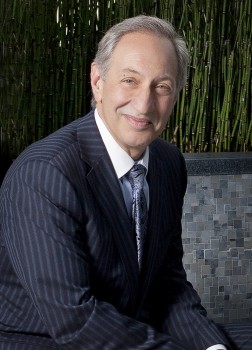Q&A: Attorney Mark Geragos '79 on his new book about the criminal justice system.

Details
Los Angeles-based criminal defense attorney Mark Geragos has tried roughly 300 cases in his more than 30-year career. He has defended numerous celebrities, including Michael Jackson, Mike Tyson and Winona Ryder, and appeared as a legal analyst on CNN, Fox and ABC. Now he's written his first book, Mistrial: An Inside Look at How the Criminal Justice System Works... and Sometimes Doesn't, with Pat Harris, a partner at his firm (Geragos & Geragos). Part legal memoir, part criminal-justice-system critique and part civics lesson, Mistrial goes behind the scenes and inside some of the most sensational trials of the past two decades to show how the media and politicization of the courts have affected our justice system. Gary Rosen '81, an attorney himself, talked to Geragos about the book.
Gary Rosen: In your book, the media come under some fairly heavy criticism, especially cable news, for tilting the criminal-justice playing field in favor of the prosecution. How does that happen?
Mark Geragos: We're in the midst of it right now with the murder trial of Jodi Arias [who was found guilty in May] down in Arizona. The ratings of the cable news outlets and specifically HLN, which I like to affectionately call the Hysterical Ladies Network, jump through the roof, and what happens is the anchorpeople become, what I would call, not dispassionate reporters. They're cheerleaders for the prosecution. It skews the system and turns it on its head.
GR: Is there anything that could be done, consistent with the First Amendment, to level the playing field with the media?
MG: No, I don't think so. [But] one of the things that I've often thought is that this“tabloidization” of the criminal law is very similar to what goes on in England, and in England they have the Contempt of Court Act, where, on the supersize trials at least, they immediately clamp down on any reporting or delay it until afterwards. I think that would be helpful.
GR: Do you think cameras in the courtroom have helped to educate the public or just provide fodder for the tabloid media?
MG: Originally, when I had two cases at the same time, Michael Jackson and Scott Peterson, I was not a proponent of cameras in the courtroom. Ultimately, Scott was convicted and Michael Jackson was acquitted, and in both cases, I think they would have benefited if there had been cameras in the courtroom. I think that in Scott Peterson's case, the case was being covered wall-to-wall by cable news and what ended up happening was that the jury, which was not sequestered, ended up going home each night. And I think in a long case—that case took almost a year—it becomes almost impossible to decipher what you heard in the courtroom and what you heard outside of the courtroom, [despite] your best efforts. … If the public had seen what was going on in the courtroom, I think they would have realized early on that that case was incredibly weak and it was never proved beyond a reasonable doubt.
GR: What's the single most important thing that could be done legislatively to improve the criminal justice system?
MG: Legislatively, [it] would be to strip prosecutors of immunity, in my opinion.
GR: Why so?
MG: If a defense lawyer screws up, he gets sued for malpractice. If a cop uses excessive force or lies, he can get sued for a civil rights violation. The only person who gets away with no discrete limitations is the prosecutor. … I think one of the great failings of the criminal justice system is the prosecutors are not held accountable.
GR: Your book takes on some judges, prosecutors and law enforcement officers by name. Has there been any blowback on that?
MG: There has, and that was expected. But if I was going to write a book, I wasn't going to sugarcoat it, and I tried to tell it entertainingly, while at the same time being true to what I've seen go on. I will tell you that probably the best result of the book is the number of lawyers who have called or emailed to say,“Amen, amen, finally someone is telling it like it is.”
GR: Do you have any advice for recent graduates who have thoughts about going into criminal defense?
MG: [As a kid,] I must have watched To Kill a Mockingbird with Gregory Peck 50 times and was an ardent follower of Perry Mason. I think one of the reasons I wrote the book is that when I got into criminal defense, I considered it to be the most noble of tasks. You represented the underdog. It was unpopular in the face of public opinion, yet you were part of what was the essential cog in the constitutional machinery. I've seen that pendulum swing over the last 30 years, and I still maintain today that I could not be prouder or think of a more noble profession than defending the damned.
Gary Rosen practices intellectual property law in Ardmore, Pa. His book on popular music and copyright, Unfair to Genius, was featured in the Fall 2012 issue.



